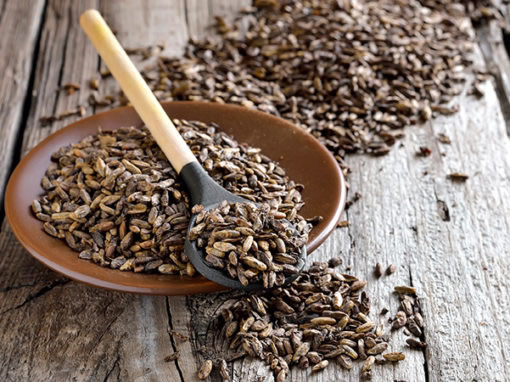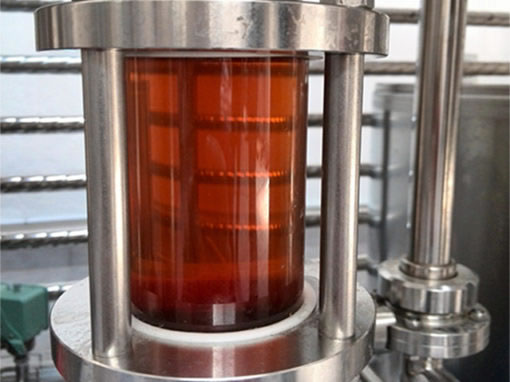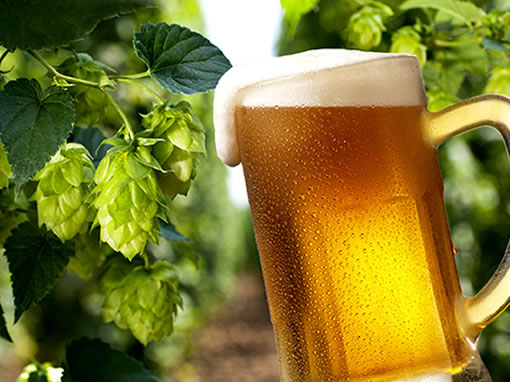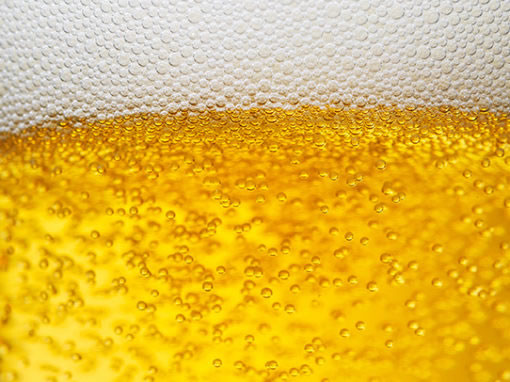
The Production process

Grinding of barley malt
The barley grains and other materials that we use to produce our beers must be ground before use.
This is because only from the ground beans it is possible to extract the starches that we will need to make beer. The grinding phase, even if it seems trivial, is actually quite critical because an inappropriate grinding can cause various problems to the final product such as: unwanted aromas and tastes, problems of converting the right amount of starches into sugars and therefore into alcohol. Different types of mills can be used for this purpose (either by modifying old pasta mills or by buying special ones in the various shops for beer enthusiasts) the important thing to check is that the mill we decide to use does not crush the grains by flourishing them but limits itself to break the outer shell leaving the inside intact. This need not to flour the beans too much is due to the fact that:
- the peel of the grains are essential in the must filtering operation as they make up the so-called "threshing bed" which is the real filter element of the filtering process and which cannot be replaced in any way;
- in the peel of the grain there are unwanted substances, such as tannins, which if floured would not be retained during the filtering phase and therefore would arrive in the wort "ruining" the beer.
To overcome the problem of chalking of the grains, a professionally derived technique is adopted which consists in wetting the grains just before they are ground.
It should be noted that it is not a question of literally soaking the beans, but of wetting them with water equal to 3-4% of the total weight of the beans themselves.
This procedure has the merit of making the peels of the beans more flexible, which will tend to break, and therefore to flour, less frequently and to improve the efficiency in the mashing and saccharification phase as the water increases the solubility of the enzymes present in the starch of the grains.

Filtration of the beer
Once the action of the diastase enzymes has been verified, that is, after the starches have been completely transformed into sugars, it is necessary to filter the dough. Usually this phase is carried out with the help of a double bottom which, supporting the threshers, allows the sweet must to be filtered until it is free of impurities. For a more effective action, the first (more turbid) must is placed to the filter vat to undergo further filtration. After extracting the first must, a considerable quantity of sugars remains trapped in the threshers. To recover them and thus increase the efficiency of the brewing system, brewers usually rinse the threshers with hot water two or three times, recovering new wort through further filtration phases. This phase, conceptually simple, has a certain importance: it is essential to prevent the peel / glumella from passing into the wort and then to the subsequent boiling phases causing a release of tannins and other bitter substances in the finished beer causing unwanted astringent tastes.

Boiling and hopping
The boiling of the wort, following filtration, is normally carried out for 60-90 minutes (some breweries, however, reach up to 250!) And performs various functions:
- denature any enzymes still present
- sterilize the must
- concentrate the must by evaporation
- encourage (in some styles, such as doppelbocks) the creation of "maillard compounds" to give notes of caramel and hazelnut and, depending on the presence of boiling hops
- favor the coagulation and precipitation of proteins and polyphenols
- allow the transformation of hop alpha acids into iso-alpha acids, responsible for the bitter component of beer.
From an organoleptic point of view, hops perform both a bittering function, given by the component of alpha acids, and aromatic, given by beta acids and essential oils. As mentioned, the bittering function can only be made possible through the solubilization of the alpha acids of the hops by means of a prolonged boiling: for this reason, the additions of bittering hops are made at the beginning of the boiling phase. The essential oils, responsible for the aromatic contribution, instead undergo rapid degradation and evaporation during boiling and the brewer tends to add flavoring hops at the end of this phase (15 minutes after the end of boiling), but also during the transfer phase of hot must ("hop-back") or cold must in fermentation ("dry-hopping") or even in bottles or tapping.

Cooling and oxygenation of the beer
At the end of boiling the must contains various “impurities” due to hop residues and coagulated proteins; the most common procedure for their elimination is the "whirlpool" system, that is a method of circular movement of the must that favors the decantation of the solid parts in a single central area of the vat where the must is temporarily placed. The must is then transferred to the fermenters and cooled through a heat exchanger to the temperature suitable for the type of fermentation chosen (high 18-25 ° C or low 7-15 ° C). The must after boiling, however, is poor in oxygen, which is essential for proper fermentation. The brewer then replenishes the amount of oxygen necessary through various methods, such as blowing pure oxygen or sterile air into the wort or simply with mechanical aeration (for example by dropping the wort into the fermenter from a certain height or simply stirring of the must in the fermenter). The must is now ready for the addition of yeast and the fermentation phase.
